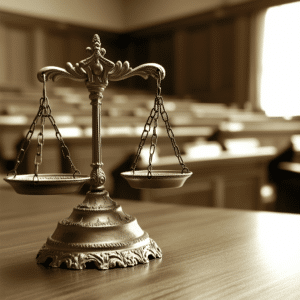Key Takeaways
- Bad faith insurance claims occur when insurers violate their duty to act in good faith towards policyholders, allowing claimants to seek legal recourse against unjust practices.
- The worth of a bad faith claim is influenced by factors such as the severity of the insurer’s misconduct, the original claim amount, and potential consequential or emotional distress damages.
- Consulting an attorney is crucial to navigating the complexities of bad faith claims, gathering evidence, and significantly improving the chances of securing fair compensation.
Let's Go Beyond, to Bring You Back
Let's get you the compensation you're entitled to. Get a FREE Consultation today.
Let's Go Beyond, to Bring You Back
You deserve the compensation you’re entitled to, call for your FREE Case Review today.
Understanding Bad Faith Insurance Claims
Bad faith insurance claims arise when insurers fail to meet their contractual obligations, leading to violations of the duty to act in good faith and deal fairly with policyholders. This duty mandates that insurance companies treat claimants fairly and adhere to the insurance agreement. When insurers engage in practices such as unjustified claim denial or unreasonable delays, they breach this obligation, paving the way for the insurance company’s bad faith claims.
Policyholders have the right to challenge these bad-faith practices. Legal frameworks, including common law bad faith principles and statutory laws, provide avenues for policyholders to seek redress. Knowing these rights and the responsibilities of insurers helps in holding them accountable and ensuring fair treatment.
The Concept of Good Faith and Fair Dealing
Good faith and fair dealing is a fundamental principle that plays a crucial role in insurance contracts. It ensures that insurers act honestly and fairly, maintaining clear communication with policyholders about the status and reasons regarding their claims. This implied covenant mandates that insurers provide a reasonable investigation and deal fairly, without resorting to bad faith practices.
Breaches of this duty can lead to significant legal implications for insurers. When an insurance company fails to investigate claims appropriately or misrepresents policy terms, it acts in bad faith, giving rise to bad faith claims. Grasping this concept helps policyholders recognize when their rights are being violated.
Common Examples of Insurer Bad Faith Tactics
Insurers often employ various dishonest tactics that violate fairness principles in handling claims. Common bad faith tactics include payment delays designed to pressure claimants into accepting lower settlements and presenting low settlement offers that fall significantly below the actual incurred damages. These tactics can put policyholders in difficult positions, forcing them to accept unfair deals.
The way an insurance company acts—whether unfairly or dishonestly—can significantly impact the value of a bad faith claim. Identifying these tactics and indicators of bad faith helps policyholders protect their rights. Being aware of unfair practices by insurers enables claimants to pursue effective legal action and hold them accountable.
These common examples help in spotting bad-faith actions by an insurance company and taking the necessary steps to challenge them.
Texas Bad Faith Insurance Lawyer
Get Compensated For Your Injuries & Damages! Call Us For A FREE Case Review And Know What Your Case Is Worth.
Evaluating the Worth of a Bad Faith Claim
Evaluating the worth of a bad faith claim involves several critical factors, including what a bad faith claim’s worth might be. The severity of the insurer’s misconduct plays a significant role in determining the value of a claim; egregious violations often lead to higher settlements. Additionally, the original claim amount sets a baseline for potential damages, influencing the overall assessed worth of the claim.
State laws also significantly affect the potential worth of a bad faith claim, with variations in compensation levels and limitations on damages depending on jurisdiction. Evaluating these factors helps policyholders seek fair compensation for their losses and hold insurers accountable.
Impact of Original Claim Amount
The original insurance claim amount is a crucial determinant of the potential value of a bad faith claim. A larger original claim can lead to a higher bad faith claim, raising the stakes if the insurer mishandles the situation. This baseline directly influences the overall compensation that a policyholder may seek.
The specific circumstances of an individual’s case, such as the insurer’s errors and their consequences, are pivotal in assessing the bad faith claim’s value. A larger original claim means a more significant impact on the individual’s life if mishandled by the insurer, emphasizing the importance of proper claim processing.
Consequential Damages
Consequential damages refer to the losses incurred by the policyholder as a result of the insurance company’s bad-faith actions. These include extra costs such as renting a car or temporary accommodation due to an insurer’s delay. Lost income can also occur when the policyholder cannot access necessary resources, impacting the overall claim value.
The personal experiences of the policyholder, including their emotional and financial states, are critical in assessing a bad faith claim’s value. Fair compensation for these consequential damages is essential in making the policyholder whole again.
Emotional Distress and Punitive Damages
Emotional distress can manifest as heightened stress and worry for individuals dealing with bad faith insurance claims. Damages associated with emotional distress include the stress and worry experienced by policyholders, which can significantly impact their quality of life.
Punitive damages can significantly increase the value of a bad faith claim, particularly in cases of egregious misconduct by insurers. These damages are meant to punish the insurer and deter similar conduct in the future, reflecting the severity of the insurer’s actions.
Steps to Prove a Bad Faith Insurance Claim

This involves gathering evidence of the insurance company’s actions that are not the result of error but deliberate bad-faith practices.
Policyholders should take steps to protect their interests and challenge unfair actions. Statutory bad faith claims provide legal avenues for property owners facing issues like unreasonable claim denial or delays after property damage.
Legal representation can further enhance the chances of a favorable outcome.
Documenting Insurer Actions
Keeping thorough records of all communications with the insurer can significantly bolster your case against bad-faith actions. Recording interactions with the insurer helps policyholders build a stronger case in a dispute, providing clarity and evidence of the insurer’s behavior.
Historical patterns of an insurer’s behavior in similar cases can also influence the perceived strength and value of a bad faith claim. This documentation serves as crucial evidence in potential legal claims, highlighting the importance of meticulous record-keeping.
Establishing the Insurance Company’s Duty
In Texas, insurance companies have a duty to act in good faith and deal fairly with their policyholders. This duty is rooted in contract law and state regulations. When an insurance company fails to fulfill this duty, it may be acting in bad faith. To establish the insurance company’s duty, it is essential to review the insurance policy and understand the terms and conditions of the contract.
The insurance company’s duty includes:
- Investigating claims in a timely and thorough manner
- Providing clear and accurate information about the policy and the claims process
- Making decisions on claims in a fair and timely manner
- Paying valid claims in a timely manner
If the insurance company fails to meet these duties, it may be acting in bad faith. Policyholders who believe their insurer has acted in bad faith can pursue legal action and seek compensation for their losses.
Legal Representation
Engaging a knowledgeable attorney can significantly improve the chances of success in a bad-faith insurance claim. Engaging a bad-faith insurance lawyer helps navigate the legal complexities of these claims, ensuring all necessary steps are taken to build a strong case.
Legal representation provides leverage against the insurer, helping policyholders achieve fair compensation and hold insurers accountable for their actions. Attorneys can guide individuals through the legal processes, negotiate settlements, and provide representation in court, simplifying the intricate legal processes involved in bad-faith insurance claims.
Recoverable Damages in Bad Faith Cases
Recoverable damages in bad faith claims can generally be categorized into:
- Contractual damages – These are directly related to the original insurance contract.
- Extracontractual damages – These include additional losses that go beyond the policy terms.
- Punitive damages – These are intended to punish the insurer for their bad faith actions.
High-profile examples of bad faith settlements include judgments such as $200 million for wrongful denial of healthcare coverage.
These damages not only compensate for the financial losses incurred but also serve to punish insurers for their bad-faith actions and deter future misconduct. Knowing the different types of recoverable damages helps policyholders seek fair compensation.
Contractual Damages
Contractual damages in a bad faith insurance case refer to the original amounts owed under the policy. In a bad faith lawsuit, policyholders can claim the owed amounts specified in their insurance policy, which could be, for example, $100,000 plus applicable interest.
These damages are directly tied to the insurance contract and are the first step in ensuring that policyholders receive the compensation they are entitled to under their policy terms. Grasping contractual damages is essential for evaluating the worth of a bad-faith claim.
Extracontractual Damages
Extracontractual damages refer to the additional losses that go beyond what is specified in the insurance policy. These include economic losses and mental anguish caused by the insurer’s bad-faith actions. For instance, the denial, delay, or underpayment of a valid claim by an insurer can result in significant financial hardship for claimants, such as lost income and additional expenses.
In Texas, legal fees incurred from hiring an attorney can be recovered in a bad faith lawsuit, adding to the overall financial recovery for claimants. This enables policyholders to seek fair compensation for their full losses, ensuring they are made whole again.
Punitive Damages
Punitive and treble damages are awarded to penalize the insurer for particularly harmful behavior and to deter similar conduct in the future. Punitive damages in bad faith insurance claims serve to punish the insurer and discourage future misconduct.
Factors Making Each Bad Faith Claim Unique
The complexity of determining a bad faith claim’s value arises from the unique circumstances surrounding each case. Each bad faith claim is influenced by the nuances of the case, including its context and the specifics of the claim. This means that no two bad faith claims are exactly alike, making it challenging to assign a specific value.
Factors such as state laws and case specifics influence the damages recoverable in a bad faith claim. Understanding these elements is crucial for policyholders to accurately assess the worth of their claim and seek appropriate compensation.
Individual Circumstances
The extent of the insurer’s mistakes is a fundamental factor when determining the overall worth of a bad faith claim. The insurer’s actions significantly impact the policyholder, influencing both financial and emotional aspects.
Individual circumstances and case specifics play a crucial role in determining the value of a bad-faith claim. Both the extent of insurer mistakes and their effects on the policyholder are integral to assessing the value of a bad faith claim.
Insurance Company’s Conduct
The actions and behavior of the insurance company play a significant role in determining the worth of a bad faith claim. Unfair or dishonest actions, such as delaying payment or denying claims without cause, enhance the value of a bad faith claim.
Differing treatment by the insurance company, such as providing adequate compensation to some policyholders while underpaying others, can also increase the claim value. Recognizing these actions and holding insurers accountable is essential for ensuring fair treatment and compensation.
Texas Bad Faith Insurance Lawyer
Get Compensated For Your Injuries & Damages! Call Us For A FREE Case Review And Know What Your Case Is Worth.
Common Myths About Bad Faith Claims
There are several common myths about bad faith claims that can confuse policyholders and insurers alike. Understanding these myths can help you navigate disputes more effectively.
Separating Fact from Fiction
Myth: Bad faith claims are only about policyholders trying to take advantage of insurers.
Fact: Bad faith claims are about holding insurance companies accountable for their actions. When an insurance company acts in bad faith, it can damage the trust between the insurance company and the policyholder.
Myth: Bad faith claims are only for large insurance claims.
Fact: Bad faith claims can be for any size insurance claim. The value of a bad faith claim depends on many factors, including the original insurance claim amount, the insurance company’s actions, and the impact on the policyholder.
Myth: Bad faith claims are only for intentional acts by the insurance company.
Fact: Bad faith claims can be for intentional or unintentional acts by the insurance company. If the insurance company’s actions or omissions cause harm to the policyholder, it may be considered bad faith.
Why Consulting a Bad Faith Insurance Lawyer Is Crucial
Consulting a bad-faith insurance lawyer is crucial when facing bad-faith actions from an insurance company. Legal representation provides experience and leverage against the insurer, significantly improving the chances of a favorable outcome.
Gathering evidence is crucial in bad-faith cases. Working with experienced attorneys can also greatly influence the outcome. Legal support helps navigate the complexities of these claims, ensuring that policyholders receive the compensation they deserve.
Case Evaluation
Legal representation in bad faith insurance claims provides heft and leverage against the insurer. Having a lawyer increases the likelihood that the insurance company will take the claim seriously, helping build a strong case against the insurer. Experienced attorneys can evaluate the circumstances, gather evidence, and negotiate for higher compensation.
Wyly & Cook offers free consultations to assist clients in evaluating their bad faith claims, providing professional assessments, and understanding the potential for success.
Navigating Legal Complexities
Working with a bad-faith insurance lawyer is essential because they navigate complex legal procedures and negotiate effectively. A lawyer plays a critical role in guiding individuals through the filing of a lawsuit, negotiating settlements, and providing representation in court.
A well-versed lawyer can simplify the intricate legal processes involved in bad-faith insurance claims, ensuring proper compliance and fair settlement negotiations without necessarily resorting to litigation.
Seeking Help for a Bad Faith Insurance Claim

A bad-faith insurance lawyer can:
- Assess the details of your case and determine if you have a valid bad-faith claim
- Analyze the insurance company’s conduct and identify any bad faith practices
- Guide you on the best course of action and help you seek the compensation you deserve
- Use their experience to determine how much you should seek for the harm the insurance company caused
Don’t let your insurance company’s bad faith practices go unchecked. Seek help from an experienced bad-faith insurance lawyer today.
Frequently Asked Questions
What is a bad faith insurance claim?
A bad faith insurance claim occurs when an insurer breaches its contractual obligations by failing to act in good faith and deal fairly with policyholders. This can undermine trust and violate the policyholder’s rights.
How can I prove a bad-faith insurance claim?
To prove a bad faith insurance claim, you should gather documentation of the insurer’s actions and seek legal representation to strengthen your case. A well-documented approach is essential in demonstrating the insurer’s failure to act in good faith.
What types of damages can I recover in a bad faith insurance claim?
In a bad faith insurance claim, you may be able to recover contractual damages, extracontractual damages, statutory interest penalties, treble damages, attorney fees and punitive damages, which encompass financial losses, emotional distress, and penalties for the insurer’s misconduct. This broad range of damages highlights the serious repercussions of an insurer’s bad-faith actions.
How does the original claim amount affect a bad faith claim's value?
The original claim amount directly influences the value of a bad faith claim, as a higher initial claim can result in greater potential damages if the insurer mishandles the situation. Thus, the stakes are higher when the original claim amount is substantial.
Why is it important to consult a bad-faith insurance lawyer?
Consulting a bad-faith insurance lawyer is essential for effectively navigating legal complexities and securing fair compensation. Their knowledge and experience significantly enhances the likelihood of a favorable outcome in your case.


